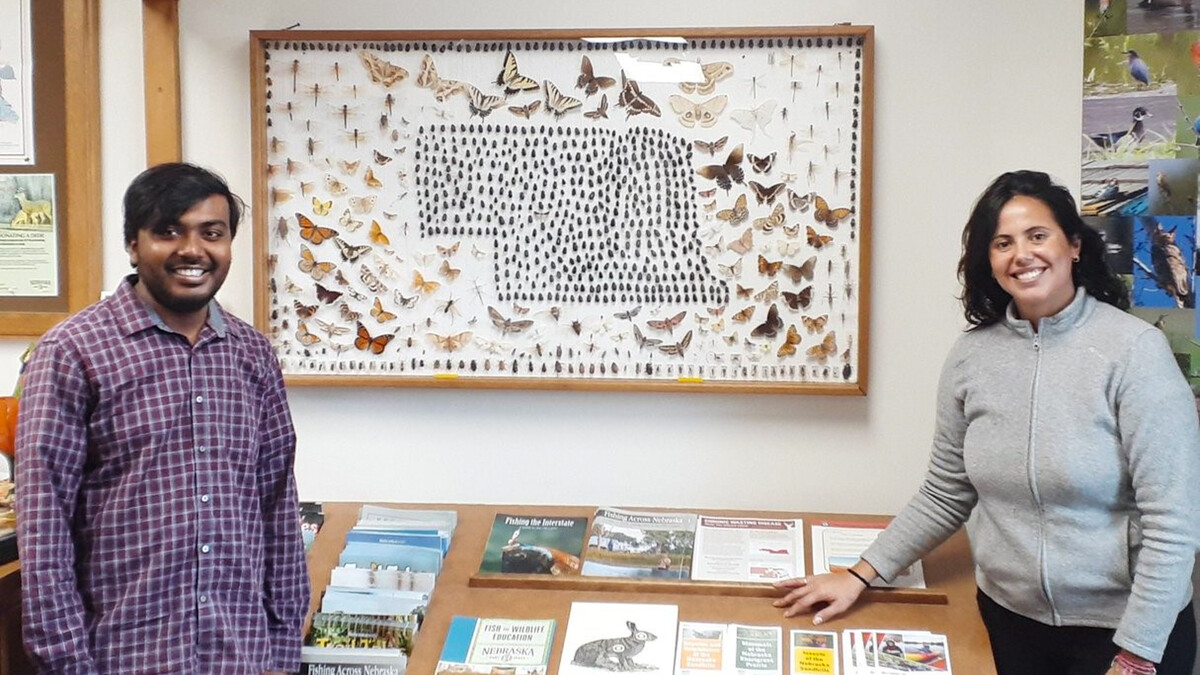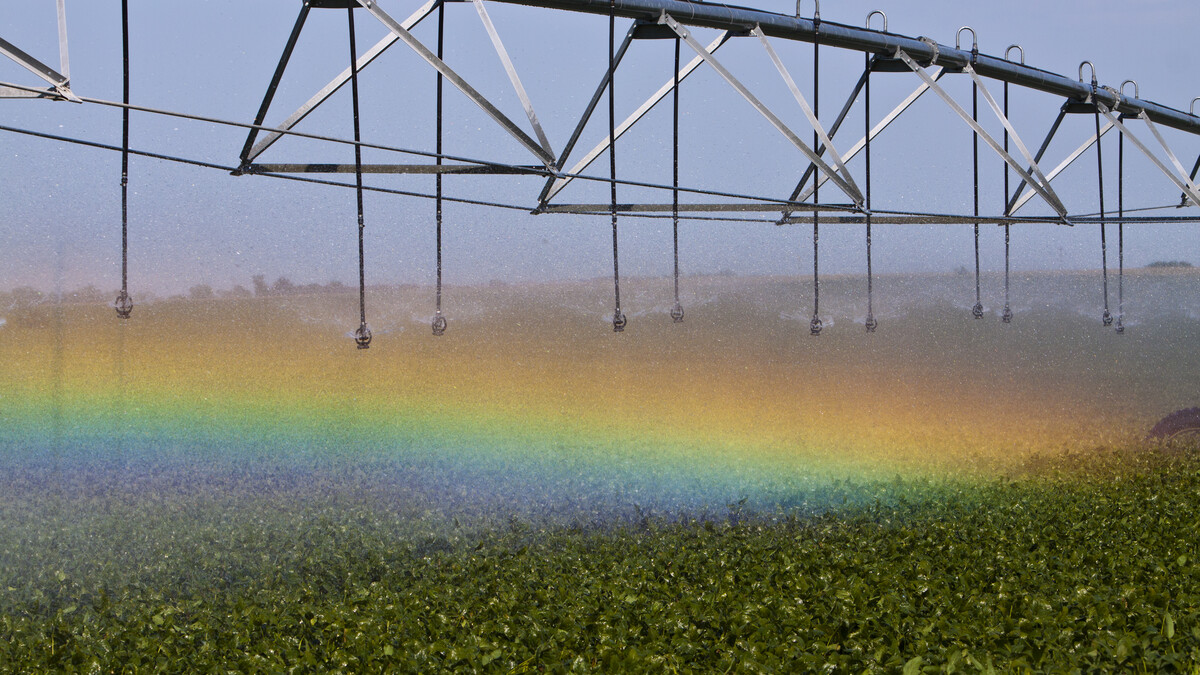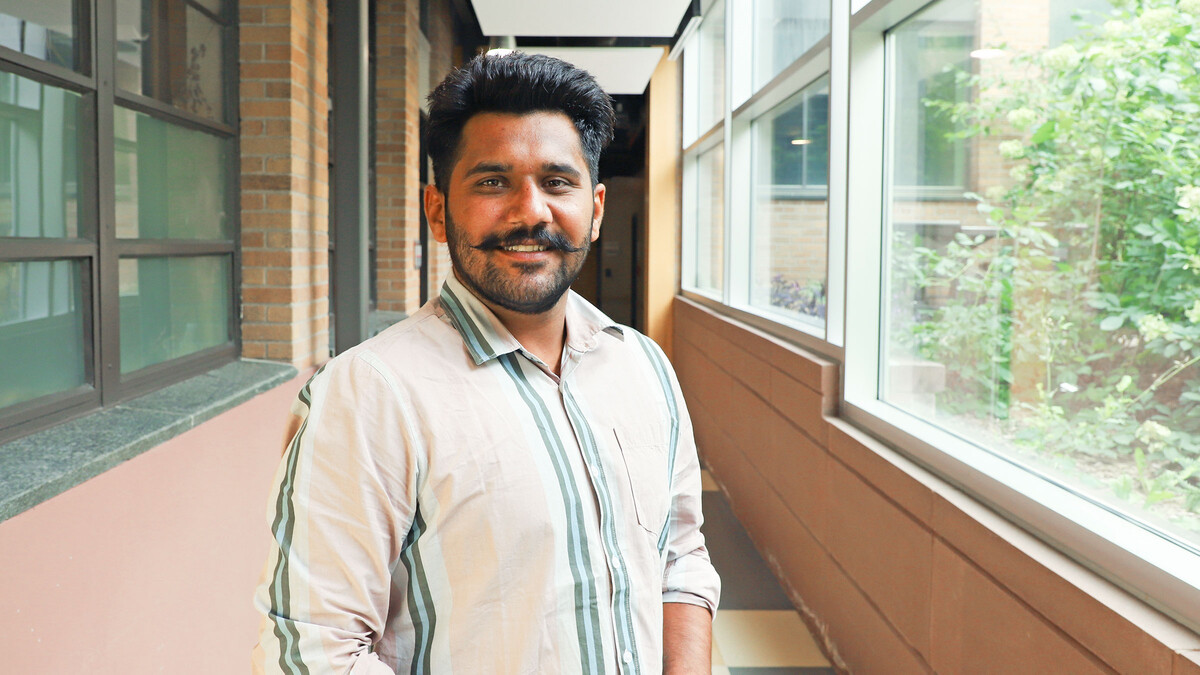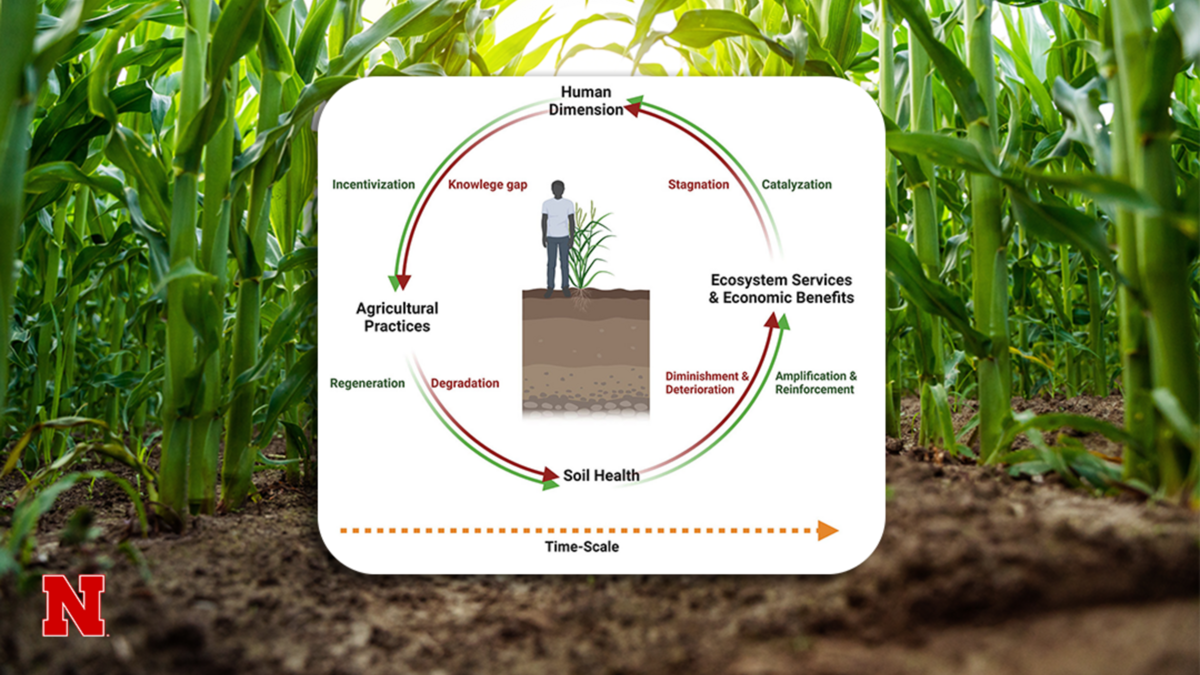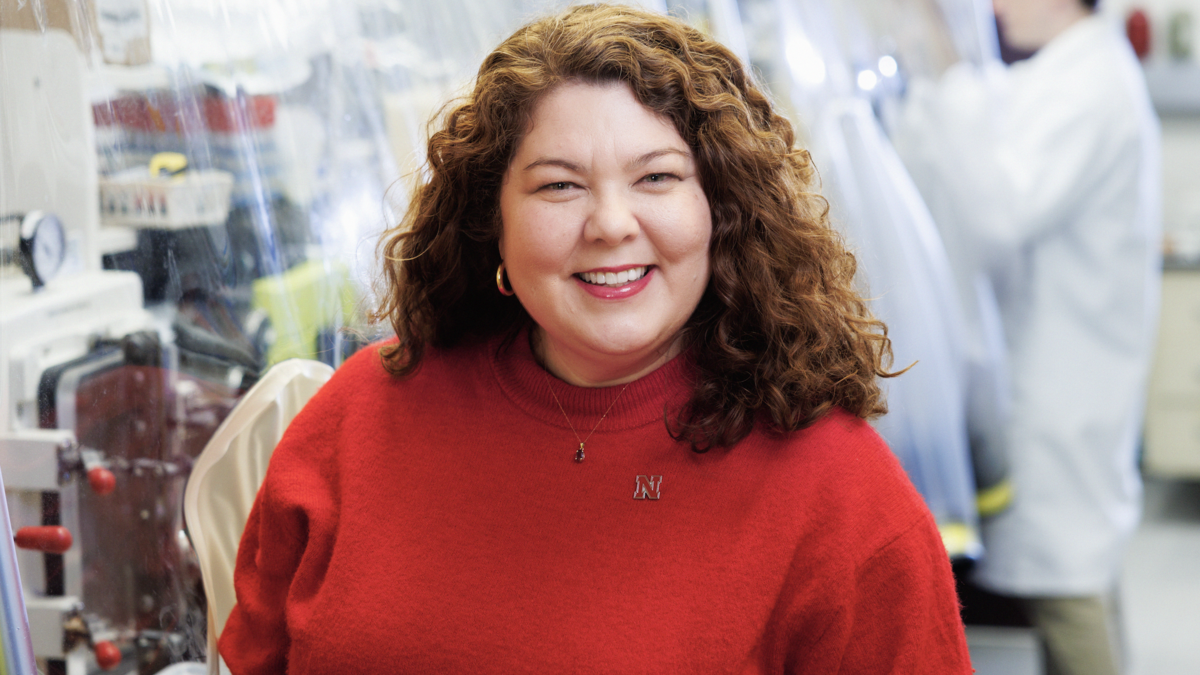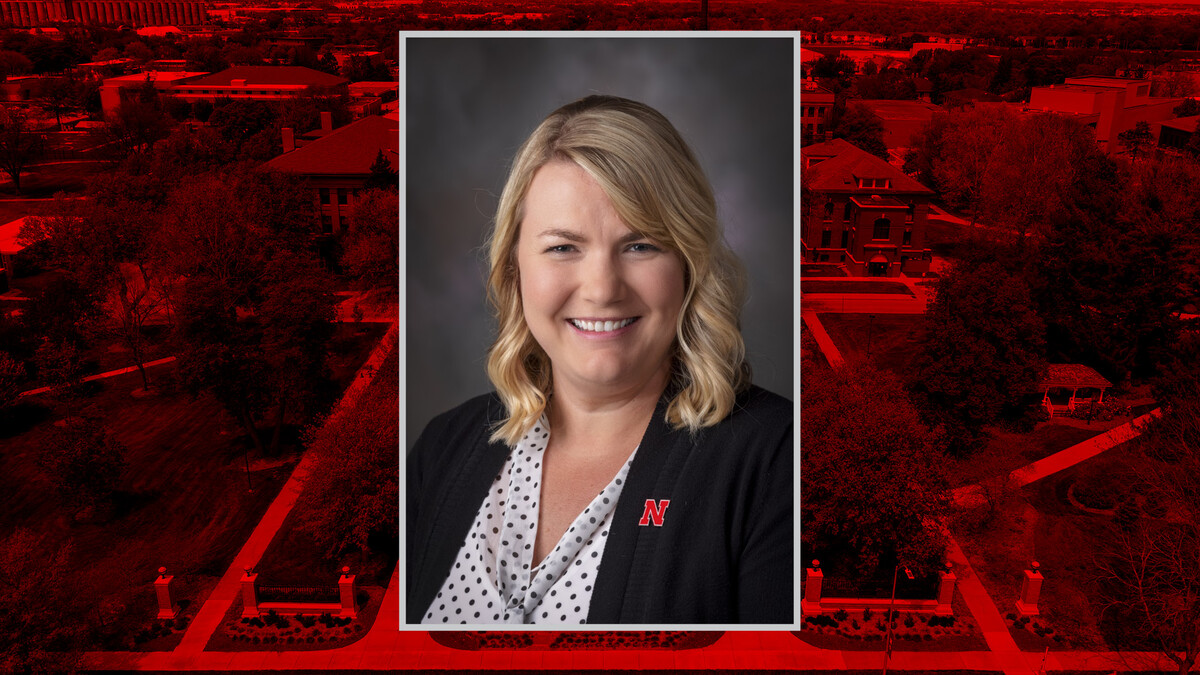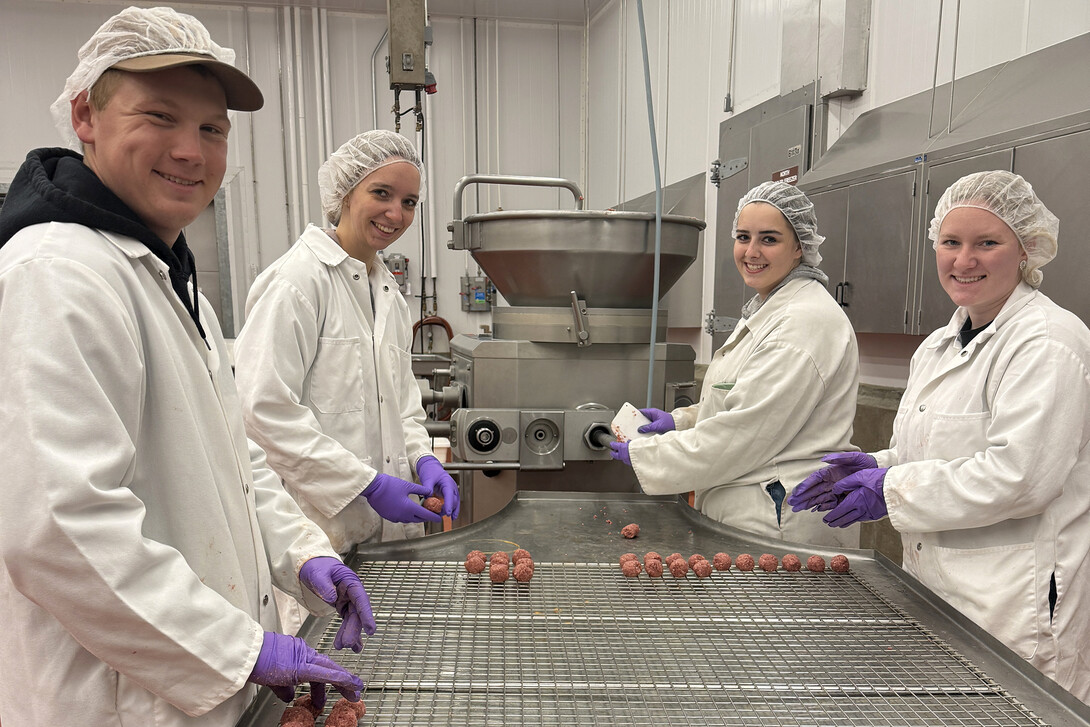
Strategic vision by the Animal Science Department at the Loeffel Meat Shoppe is providing important opportunities for student learning and a new collaboration with private industry.
The meat lab is organized for efficient, professional-level operations that enable students to receive training in real-world conditions. The older part of its dual-building structure was built in the 1950s with an expansion in the 1980s. The adjoining retail shop, providing safe and inspected federally inspected meat to the local community, helps students learn store management and customer service. Part-time student workers make all these activities possible.
The experience of Steven Rogers illustrates the opportunities for student growth and fulfillment.
As a city kid who grew up in the Los Angeles metro area, he had no expectation of pursuing a career in meat management. But the series of rewarding experiences he had as an undergraduate working in the Loeffel Meat Shoppe has spurred him to pursue that career path.
Over four years, he developed skills ranging from meat cutting to inventory management, production scheduling to research work for new product creation.
“The meat lab has given me the opportunity to find my true passion in life,” he said. After graduating in May with a bachelor's degree in animal science and a minor in meat science, he began work as the meat lab’s full-time assistant manager.
The instructional approach is especially helpful, he said, because it maximizes the educational value for students regardless of whether they have previous experience with livestock.
“When I started at the University of Nebraska–Lincoln, I had so much to learn because the average student in my department had some experience in agriculture,” he said. “The effort of professors to teach material and engage in active learning was a huge help for me in my college career.”
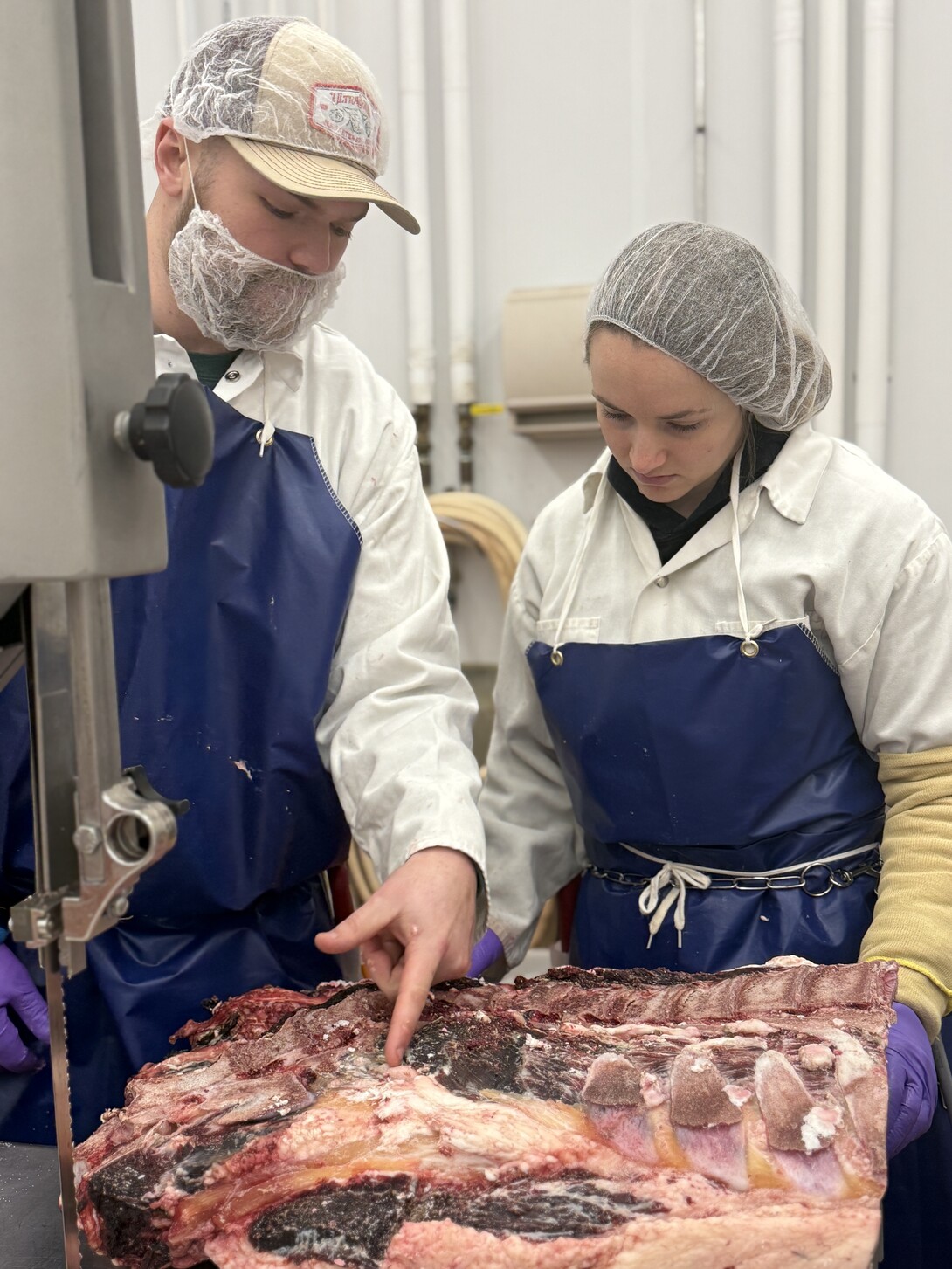
The meat lab is both a small processor as well as a key example of fulfilling the university’s land-grant educational and outreach mission. The lab is large enough to accommodate classes and guests to observe and learn by doing hands-on training. And now the facility’s high standards and efficiency have opened the way for Prime Education, a new collaborative training program being developed after extensive consultation with private-sector companies.
Once the program is launched sometime over the next year, the university will provide private-sector entry-level workers with hands-on training at the meat lab and at the Nebraska College of Technical Agriculture in Curtis.
A key innovation is the creation of short training videos on tasks such as harvesting, knife sharpening and proper dressing, said Jordan Wicks, an assistant professor and meats extension specialist with extensive experience in meat lab operations and management. To maximize instructional efficiency, students will learn basics via the video instruction before beginning the program’s in-person training.
“Prime Education is a great opportunity for those who may be curious about entering the meat industry,” said Wicks, who is overseeing the training initiative and also an adjunct professor at NCTA. “They can get gain a better understanding about the whole process — from food and personal safety to humane harvesting, fabrication and further processing, to packaging and labeling.”
The meat lab consists of multiple components facilitating an array of meat processing tasks under industry-quality conditions.
In the holding pen, students can see how a recently installed restraining chute provides better, more humane animal handling. The cutting room has been streamlined for more efficient assembly-line style processing, with a drop rail to bring portions of the carcass down to a workable level.
In the thermal processing room, students learn to operate the smokehouse, fermenting and drying cabinet, and steam cooking oven, all capable of holding about 500 pounds of product at a time. In the packaging room, students are trained to process products from the smokehouse. In the manufacturing room, they create processed meats using equipment such as a stuffer, grinder, emulsifier and injectors.
With the meat lab as the instructional backbone, classroom instruction begins with basic animal evaluation, and more advanced classes address topics including muscle conversion, aging and meat grading.
The Meat Judging and Livestock Judging teams provide key opportunities for students to further expand their knowledge and experiences.
“That’s been really beneficial for a lot of our students,” Wicks said. “It helps them understand that there are a lot of opportunities for growth.”
Many of the students travel to the national meat science conference each summer, where they meet industry professionals and deepen their understanding of job opportunities, current research focuses and industry challenges.
Around a dozen students work part-time in the meat lab, gaining practical knowledge about the industry.
“The more I worked in the lab over my first two years of college, the more I started to get involved and take the lead on different projects and product production,” Rogers said. “With this experience, I traveled across the country for industry conventions and went on the meats industry study tour that took me to plants and facilities from Nebraska all the way to Wisconsin.”
This range of experiences gave Rogers a key takeaway: “Do not close yourself off to different opportunities presented to you.”
He began as a pre-vet student and by the end of his undergraduate career had become a meat scientist with the goal of someday owning his own meat locker.
“Allowing yourself to learn different sectors of the animal science industry allows you to find the areas you may have not known about,” he said. “It could help you find your true passion.”
